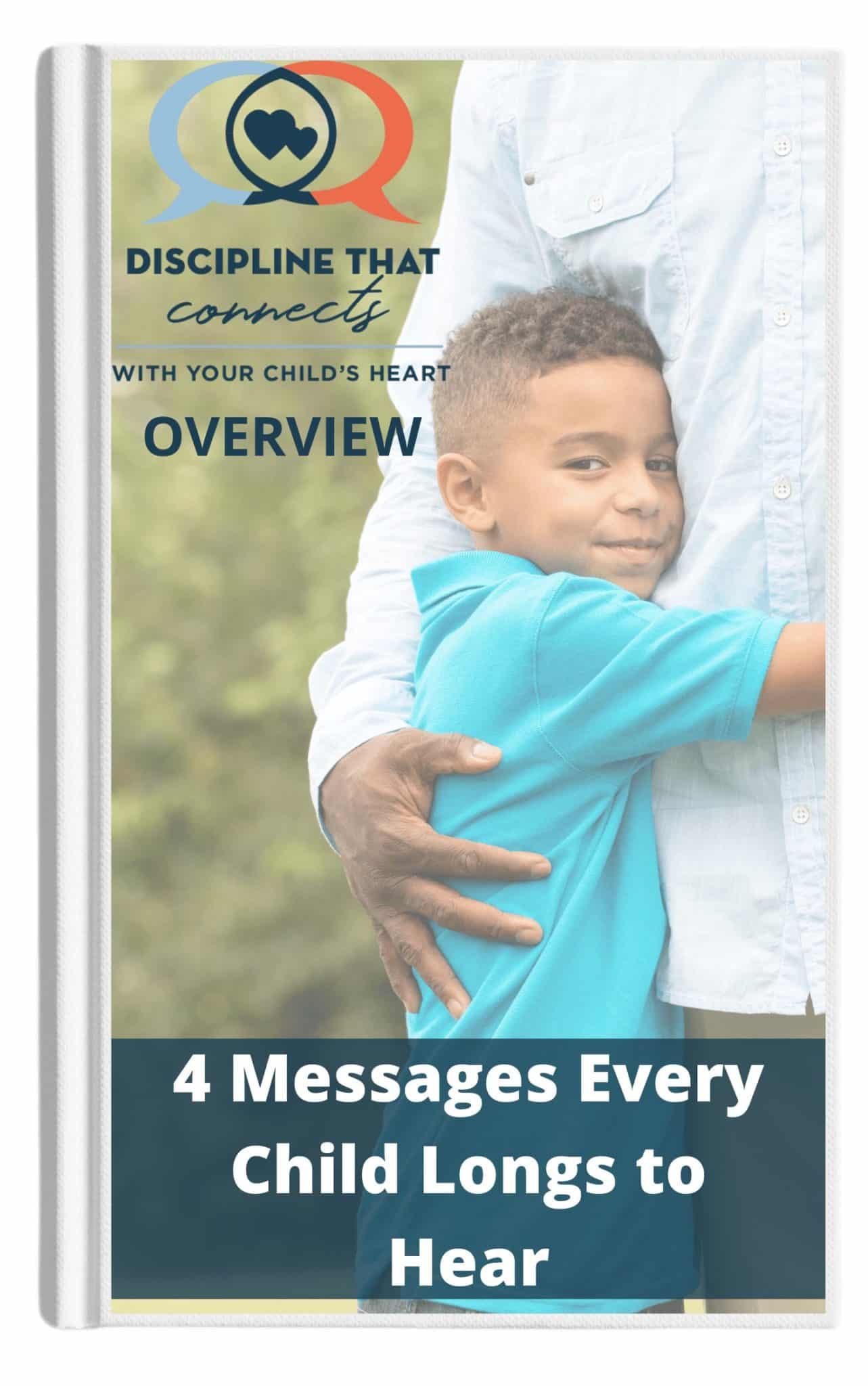
When It Comes to Expressing Love…Timing Matters!

If you ask most parents, they would say it’s important to love children unconditionally. But in practice, sometimes that’s harder than it sounds!
What exactly is unconditional love? What does it look like?
One thing’s for sure: unconditional love is not praise for positive behavior. When you express love in any context where children can possibly interpret your affection as conditional (based on their behavior), it loses its power as an expression of unconditional love.
When this happens over time, children may begin to believe that love is earned. For example, I once worked with a teen who reported that her father only expressed affection for her in her early years when she got dressed up. She grew up believing that she was lovable only when she looked pretty. She was very self-conscious about her appearance and struggled with self-esteem and an eating disorder as a teen.
Unconditional love is not praise for positive behavior.
Another young man related how his dad would show up at his football games and beam with pride. Unfortunately, this was the only time this young man received affirmation or affection from his dad. When an injury forced him to quit football, his resulting despair led to depression and thoughts of suicide. In his mind, there was nothing about him to love anymore.
Intentionally communicate love messages
Unconditional love is devotion and affection for someone, regardless of their behavior, appearance, performance, or ability to meet your needs. Sometimes even in spite of those things. This means you affirm your children simply for who they are, not for what they do.
When my first child was born, I was overcome by emotion as I whispered to him, “I love you; you are a miracle, a gift; you are infinitely valuable.” Learning to communicate these messages throughout my children’s lives (even yet today) is the essence of unconditional love.
The messages you communicate are important. But what is just as important is the timing of your communication. Hugs, smiles, and “I love you’s” consistently given only in response to positive behavior can breed insecurity and a performance-based sense of self-worth in children.
So if you really want your love to land on your child’s heart, be thoughtful about communicating your love during regular routines, such as bedtime or returning from work. And intentionally communicate love messages when the children are not doing anything particularly noteworthy. The child lounging on the couch gets the message, “I don’t have to do anything special for Mom or Dad to love and enjoy me!”
But the times when kids have “messed up” are uniquely powerful opportunities to communicate a message of unconditional love. The less children feel they deserve love, the more significant the impact of lavishing it on them anyway.
The less children feel they deserve love, the more significant the impact of lavishing it on them anyway.
A fun idea to celebrate your kids
One year in the Jackson household, a considerable variation in the grade point average of our children’s report cards left one of them quite discouraged. This child’s dejection made it evident that this was an excellent opportunity for encouragement. We wanted to make sure we communicated to all three children that our love for them is unrelated to their success.
We decided to have a “Report Card Party” to celebrate our children regardless of their grades. Problem-solving about raising the low grades could wait till later. We had a special dinner and then ran around the house like loonies, whooping, hollering, and firing Nerf guns at each other. We all had a blast, but the child with the lowest grades seemed to have the most fun!
A father’s unconditional love
Jesus’ parable of the father’s response to his prodigal son depicts powerful love for a child who had sunk to the depths of failure (Luke 15:11-32). The watchful father longs for the return of his lost son. When he finally sees him, he leaps into unmistakably loving action. He ran to his child, which was a wildly undignified thing for an older man to do in that culture! After greeting him with a joyous embrace, he threw a grand welcome home party to honor his returned lost son. He then also extended the same extravagant grace to his rude, sour-attitude older son.
This story challenges us to look at the times when our children blow it the worst and ask ourselves if we have a heart of unconditional love for them. This love is unwavering – ever providing, defending, nurturing, comforting, and forgiving. It says, “I’m here for you, no matter what” (2 Timothy 2:13). “I want the best for you” (Jeremiah 29:11). “Nothing can separate you from my love” (Romans 8:38-39).
Consider these questions:
- When do I most often express love to my children? How does it relate to my mood and behavior? What messages might they conclude from the timing of my affection?
- What is a typical difficult struggle for each of my children that could be an excellent opportunity to express unconditional love to that child? How can I express love more like the father did toward his sons in Jesus’ parable?
This post is an adapted excerpt from our book, How to Grow a Connected Family

4 simple messages.
1 simple framework.
Get the FREE ebook, and start your journey toward better, more connective discipline in your home.

